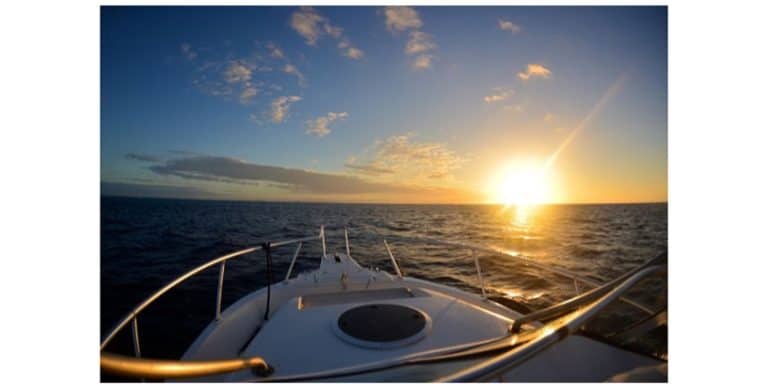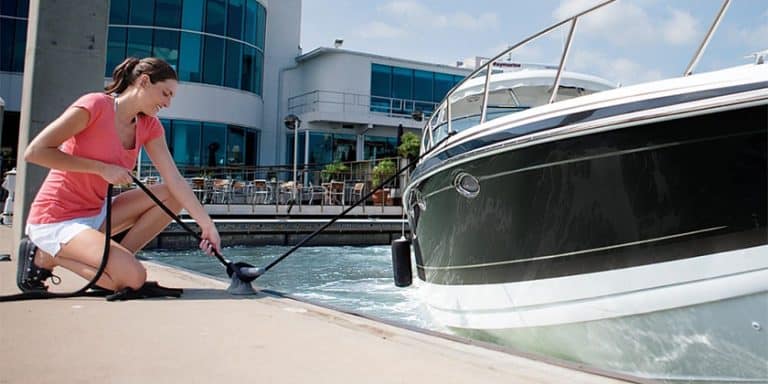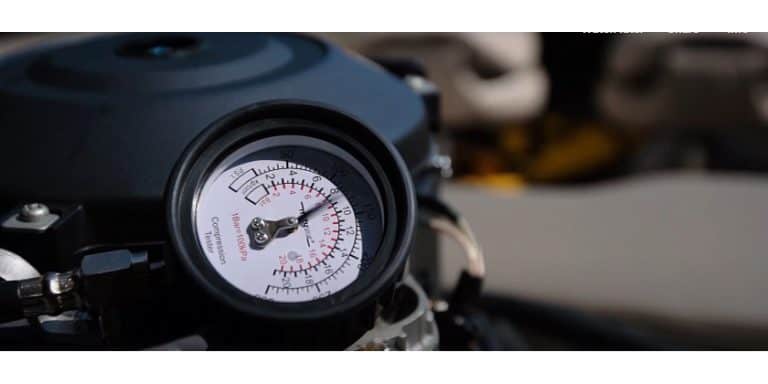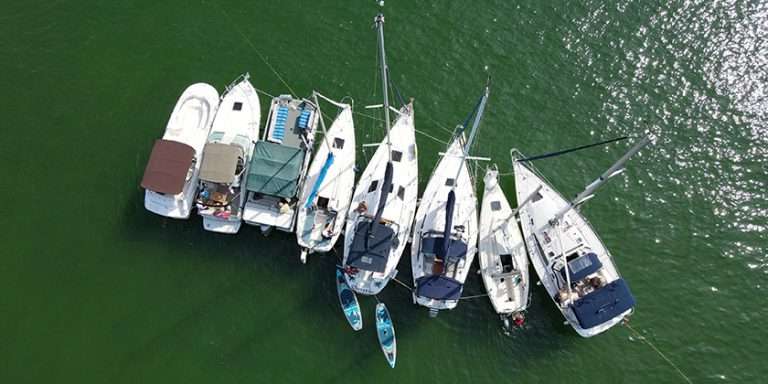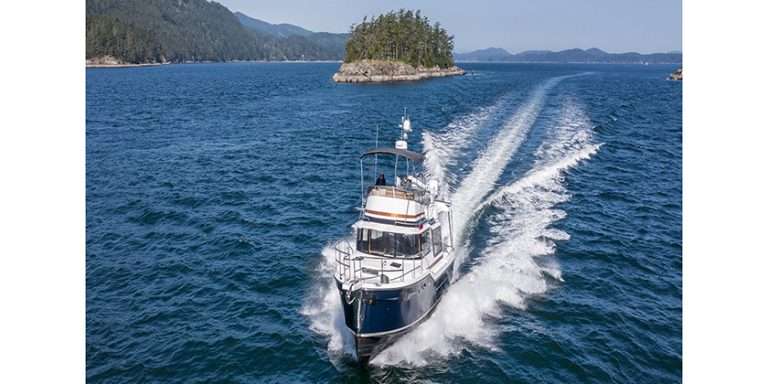So you want to be a better boater? Boating skills for novice to advanced boaters
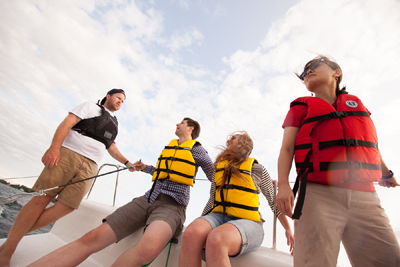
By Amy Hogue
The COVID-19 pandemic has created unexpected changes in our lives, impacting everything from boating to vacations and these trends look to continue into the future.
In summer 2020, those trends were seen in the unprecedented numbers of boaters flocking to marinas and boat launches seeking a COVID-friendly vacation on the water. While the waterways were more crowded than ever before, the boaters you were likely to encounter weren’t necessarily in the know for boating etiquette, or marine know-how.
For new boaters, a Pleasure Craft Operator Card may seem like the entry into the world of boating, but this card doesn’t mean your education is over. In fact, some experienced boaters would argue it’s just beginning.
Breaking into the world of boating can feel a bit like breaking into the cool kids’ group in high school – this world is filled with unspoken traditions and etiquette, and a complex range of resources and skill building that can be challenging for newcomers to navigate.
Let this article be your primer for helping you transition from nervous newbie to a confident boater.
Who’s who
If you’re not sure who to turn to for information related to getting started on the water, there are a few organizations that come to mind. For the basics in getting started on the water and information about operating or owning a boat, Discover Boating (discoverboating.ca) and Start Boating (startboating.ca) are resources that can form the foundation of your boating knowledge.
Discover Boating will help you with everything you need to know from purchasing a boat to the ins and outs of the boating lifestyle. Start Boating covers what you need to know before heading out on the water for all smaller watercraft, including kayaks, canoes, and stand up paddleboards, (SUPs), in addition to power boating.
When you’re ready to expand your experience with hands-on, or virtual programming, Sail Canada (sailing.ca) and the Canadian Power and Sail Squadrons (cps-ecp.ca) are your most valuable resources. Sail Canada is a national sport organization and provides the national and Olympic level training and team sport training for sailors going to the Olympics.
On the training side, Sail Canada has always placed a big focus on practical and in-person training to ensure people are prepared to go out on the water confidently. Sail Canada courses are delivered at schools and sailing clubs across the country by certified instructors. Don’t be fooled by their name – Sail Canada offers information and courses for sailors and also, for power boaters.
The Canadian Power and Sail Squadrons (CPS-ECP) is another organization with important information to share with new boaters. CPS-ECP is now one of Canada’s best established Pleasure Craft Operator Card educators and testing services, but then they take it to the next level with some more in-depth knowledge that will take you confidently onto any body of water. CPS-ECP has been delivering courses in boating long before they were mandatory.
So, you bought a boat – now what?
So, you bought a boat? Congratulations on your new purchase. You are now ready to head out onto the open water and sail, or cruise to wherever your heart takes you. Or are you?
Just as a learner’s permit for your driver’s license doesn’t mean you are ready to take off on a trans-Canada trip, your Pleasure Craft Operator Card doesn’t mean you are now knowledgeable in everything boating-related. This course offers the minimal information you need to make sure you don’t injure yourself, or someone else while out on the water, but it leaves plenty of room for more knowledge and skill building.
As with driving a car, there are dangers and hazards that come along with operating a boat, some that a beginner may not even be aware of. Changes in weather conditions, water hazards and even other boaters can all change at a moment’s notice and cause untold problems for boaters relying on only a brief introduction into the marine world.
Sail Canada offers practical and in-person training to ensure boaters are prepared to go out on the water confidently. Samara Crothers, Program Manager from Sail Canada, recommends that new boaters expand their knowledge base with additional training before heading out on the water.
“I think it would be similar to getting your driving license, taking the test and not having any opportunity to actually drive a car without someone providing some instruction,” said Crothers. “The Pleasure Craft Operator Card provides some of the basic theory and key regulations that boaters need to be aware of, but it doesn’t provide an opportunity for any practical hands-on training.”
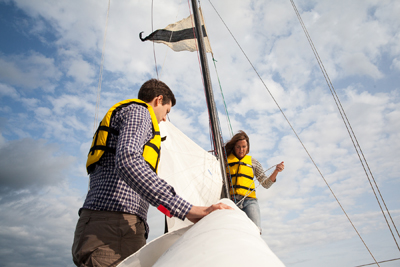 Learn the language
Learn the language
As if the marine world wasn’t confusing enough, there is also a whole new language to learn. As you get ready for another exciting summer on the water take some time to read up on the universal language of boating.
Luckily, many commonplace terms that we use as every day, actually have their foundation in the marine world. Think of these expressions – ‘all hands-on deck’ or ‘don’t rock the boat’ – that refer to situations that occur in the marine world.
Vanessa Schmidt, Marketing and Graphic Manager from Canadian Power and Sail Squadrons explained there is a different language for boaters, and there are times when it will quickly become obvious to experienced mariners that you are a novice.
This winter take some time to learn the language of the world you will be enjoying this summer. Pretty soon you’ll be dropping ‘bow’,’ stern’, ‘starboard’, or ‘port’ into conversations and will sound just like an old deck hand.
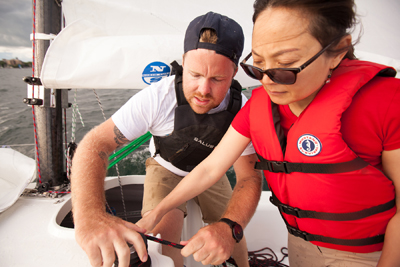 What you don’t know you don’t know, could save your life
What you don’t know you don’t know, could save your life
Beginning boaters should expand their knowledge by taking courses designed to increase confidence on the water, but safety is another big reason to sign up for a course from a certified instructor. Crothers points to the constantly changing conditions while out on the water as something that can affect your safety and that of others.
“It’s about being prepared and confident to handle different situations on the water. Weather can change quickly and knowing how to manoeuvre and get in and out of docks and anchorages safely during all those different conditions is important for everyone’s safety on the water, including other boaters,” said Crothers. “Knowing what to expect when you encounter another boater isn’t just about manners, it’s a safety issue, too.”
Schmidt also stressed there are things that boaters need to know about before heading out on the water that may not be covered by the Pleasure Craft Operator Card training. She offered as an example, that knowing who to contact in the case of an emergency is something that could literally save your life.
“We encourage people to get their VHF radio license and explain how valuable that could be for your own safety,” Schmidt said, adding that it’s important for new boaters to understand that mariners are expected to offer assistance to other mariners if they are in danger.
Knowing emergency protocols can make a difference in how quickly you are able to get the help you need. As an example, calling 9-1-1 during an emergency instead of contacting the coast guard, would delay getting an appropriate response, as would not being able to determine your exact GPS location, or offering an accurate boat description.
Become part of the club: Courses and programs to advance your skills
The Canadian Power and Sail Squadron offers a wide range of courses, from Level One all the way up to Level Seven, and then additional advanced courses on topics like VHF Radio, Navigation, Anchoring Techniques, Reading Weather Conditions and more.
The Canadian Power and Sail Squadrons starts with the Pleasure Craft Operator Card certification, but they can also take you well beyond the basics. These programs even cover topics like boat maintenance, and more.
Sail Canada also offers a wide range of courses, including an Intro to Boating program that covers everything from keel boating to power boating, including getting on and off the boat on a dock, how to dock safely, and more. Navigation courses can also provide further education and understanding for everything from reading charts to how to navigate in a waterway that you may not be familiar with.
Both organizations offer alternative virtual programming due to the COVID-19 pandemic. Please visit their individual websites for more information or to register for a program.
Sail Canada: sailing.ca
Canadian Power and Sail Squadrons: cps-ecp.ca
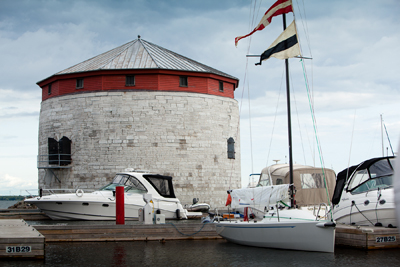 Sail Canada’s boat handling tips for beginners
Sail Canada’s boat handling tips for beginners
When traveling in a marina keep your speed slow and easy in the tight quarters.
The expert instructors at Sail Canada opened up about what you need to know about handling a boat before you head out on the water for the first time.
Whether you will be boating in a sailboat, or power boat you will need to begin preparations before you leave the dock. Instructors recommend using a pre-departure checklist to keep track of what you need to do, to be sure you have all the necessary equipment and that your boat is in good shape.
Check the weather forecast and refer to charts to scout out the navigation issues in the body of water you will be visiting. It’s always best to have a “worst case scenario” plan – leave an electronic or paper Trip Plan (or Float Plan) with someone responsible, so in the event that things go wrong, people will know where to find you.
Remember that you are not the only boat out there – when you spot another boat, err on the side of caution and don’t assume they are aware of the expected rules of conduct. Keep to the edges, slow down, or stop until you can determine the appropriate actions to take.
Sail Canada’s tips for driving a boat:
• In a marina, never go any faster than necessary and be prepared to avoid hitting something.
• Favour the windward/up current side.
• Turn before you burn. Make sure the boat is heading in the desired direction before adding throttle.
• Know how to pivot your boat. This is easy with twin screws, back on one and forward on the other. Every vessel can be pivoted, methods differ for different types of propulsion.
• Use a “boater’s eye.” Are you moving? When pivoting a vessel, or docking, look sideways. It is much easier to tell if you are moving, or stopped if you look sideways down the marina, or at the dock.
• Learn to use spring lines. In tight spaces and when wind and current conspire against you, these can keep you out of trouble. Hands and feet should not be used to keep the vessel out of trouble.
• When leaving or returning to the dock, have a plan and communicate it with others on the boat. If things aren’t going as planned, stop and consider trying something different. When docking, back off. When departing, gain control of the vessel and develop a new plan.
• Don’t let crew jump off, or onto the boat when it is moving. Control vessel motion with the engine and lines.
• Stay calm. In the event of problems, boats can be repaired.
And finally….
• Take a lesson, get coaching from an experienced instructor. Gain from the experiences of others.

